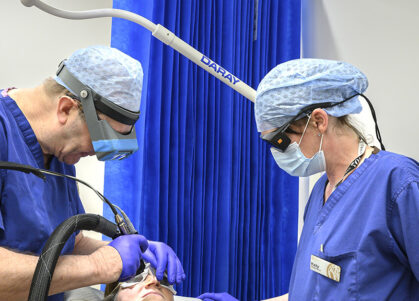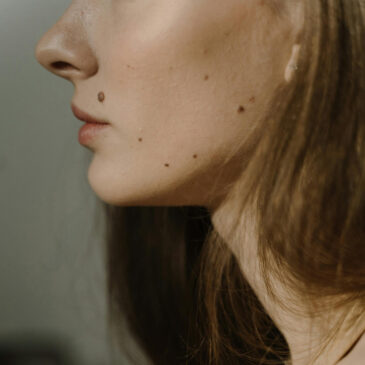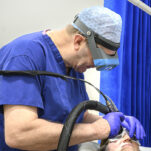Individual Diagnosis
There are around twenty common types of skin lesion, plus sub groups and pigmented, or non pigmented alternatives. Understanding them and how they interact with the skin on your face, or neck is critical to treatment decisions.
Your consultant will examine any lesions, often in microscopic detail. A blood test is a possibility, along with allergy testing, or microbial analysis of skin swabs.
Where any lesions could be posing a medical risk, they will be fully investigated. Even where apparently benign lesions are removed, they may be sent to a laboratory for final analysis, to ensure there is no inherent risk.
Good aesthetic results are important for your skin but at every stage, a consultant is there to ensure your long term health is safeguarded.
They will discuss their diagnosis with you, explain available treatment options, timescales involved and the likely outcomes.
Approach To Treatment
There are skin lesions which will respond to creams, or be treatable with cryotherapy (freezing), curettage, light therapy, or other techniques. In the majority of cases, surgical removal still tends to be the best option.
A good percentage of our patients will be referred by other doctors, pre removal approaches may have been tried. Removal also helps to stop lesions returning, or spreading, or other health risks and can offer the best cosmetic outcome.
The surgical removal of a facial lesion can be carried out using local, or general anaesthetic, depending on the individual case and personal wishes.
An antiseptic solution is used to clean the area and sections to be removed may be highlighted with a special marker. Time taken to remove the lesion (or lesions) will vary, although this is rarely a lengthy period.
A dressing may be sufficient, or closing any wound with sutures. Care will have been taken to consider natural lines and how any disturbance is likely to heal.
Where a skin graft is needed, this will normally be carried out at the same time as surgery. Skin may be taken from behind the ear, or the collarbone, where there is excess skin, then carefully sutured in place and dressed.
Ongoing Support
A little swelling, or bruising is possible, although will soon go down. Any short term pain should require no more than paracetamol, or ibuprofen.
We give all the advice you need on those points, returning to work, driving, caring for the area where facial surgery took place. The position will differ slightly from case to case, support and advice will be tailored to you.
A review appointment may be arranged. To remove sutures if they are not self dissolving, to discuss any lab results, or matters you wish to discuss.
Treatment at our London clinic is always based on individual care. If we can help in any way, please get in touch with our friendly staff.


